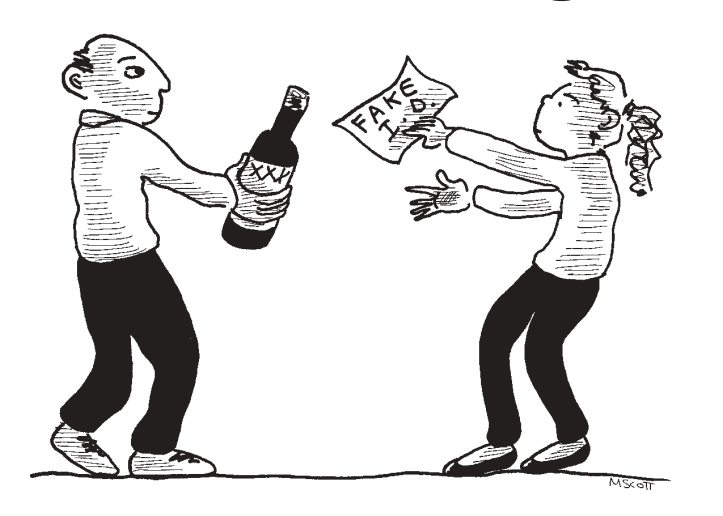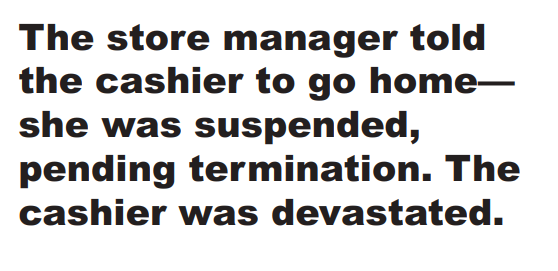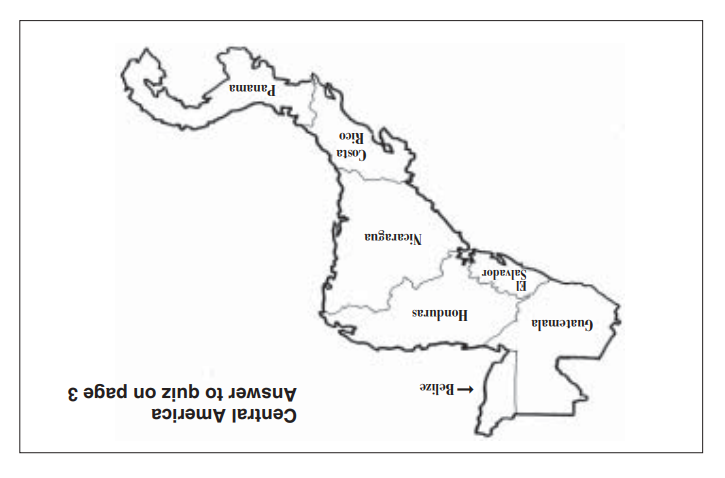Cashiers must be careful when checking I.D.s
It was a busy Saturday afternoon at a Neighbor Island grocery store and a line of customers were waiting impatiently at the checkout counter.
Finally, it was the young man’s turn with the single bottle of beer. The cashier, an ILWU member, asked to see some proof of age. The young man was from outof-state, but he had a local ID. She punched in the birthdate on her cash register, which said the person was old enough. The young man paid for the beer and left the store.

The cashier rang up the next customer. A few minutes later a police officer interrupted her and handed her a citation for selling alcohol to an underage person. Such a citation can result in a fine up to $2,000 and one year in jail. The store also received a fine of $1,000. The store manager told the cashier to go home—she was suspended, pending termination. The cashier was devastated. She had just returned to work from a long illness and now she could lose her job and face a big fine and possible jail time.
She took her case to the union, which helped prepare her defense. The union had fought and won a similar case a year before. A design flaw in the cash register program allows for the entry of a 5 or 6 digit date, which can lead to errors for certain dates—for example an underage birthdate of 11/07/84 could be mistakenly entered as 1/10/78 (the “4” is dropped). The cash register does not show the numbers punched in nor print a record as a backup. And if a mistake is made, the cash register does not allow a second chance. The store did change their procedures to require 6 digit dates, but this particular cashier was out sick at the time and never received the training.
It took two months before her case went to trial. The judge dismissed all charges, saying the cashier followed all reasonable procedures in asking for proof of age and entering the date into the cash register. If a mistake was made, it was due to human error and was not willful or negligent. The cashier is back on the job, but she did lose income and suffered through a terrible ordeal.
True story
This is a true story. The underage young man is one of many such decoys used by MADD (Mothers Against Drunk Driving) to go from store to store and attempt to buy alcohol. When the decoy succeeds in buying alcohol, he or she reports it to the police, who then issue a citation to the store and cashier.
Last year, the Health Department’s Alcohol and Drug Abuse Prevention Division awarded MADD a $272,740 contract to do a survey on sales to underage drinkers on Oahu. MADD decoys successfully bought liquor from 22 percent of the 396 merchants approached in 2003, compared with 26 percent in 2002. This year, MADD is again doing the survey which has been expanded to include the Neighbor Islands.

Better ways to deal with problem
The ILWU believes the punitive approach of using decoys and citations is not the way to prevent alcohol sales to minors. There are much better ways to do this.
1) The cashier in our story will never again make the mistake of selling alcohol to a minor. She will ask for identification and double check the birthdate. Yet, with the punitive approach, this cashier would have lost her job. A new, less experienced cashier would have taken her place and could repeat the mistake. It would be far better to issue a warning and work with the store management and workers to adopt better procedures and do more training.
Management must take responsibility
2) Most of the problem lies with management and not the worker who makes the sale. It is management who tells cashiers to “move the line” instead of taking the time to carefully check proof of age. It is management who schedules fewer workers so checkout lines are longer and cashiers must work faster. It is management who chooses to send only one worker per shift to Liquor Commission training. It is management who profits from the sale of liquor, not the worker. Yet the MADD approach punishes the worker with a big fine and jail time, while the store owner is only subject to a relatively small fine. It would be far better to require store owners to spend the equivalent of a fine on worker training.
Use surveys to improve training
3) There were many important lessons that could be learned from the survey, yet the results are not widely publicized by the Health Department nor used to improve training.
The survey showed that where cashiers asked for IDs they were able to spot the underage decoys 91 percent of the time. The lesson here is to always ask for identification and always ask the person for their birthdate and age. People using false or borrowed identification will often not remember the false birthdate.
Another survey result showed that underage female decoys were almost four times more successful in buying liquor then male decoys. Was this because they looked older or were they flirting with male cashiers? Perhaps male salesclerks need some specialized training in this area.
Cashiers should be careful
Underage MADD decoys are out there, trying to buy alcohol. So be careful. Ask for proof of age. Take your time, follow store procedures, and check birthdates carefully. Take the issue up with your union representatives before anyone gets into trouble. In this way, the union can work with management to improve store procedures and make sure workers are properly trained.

